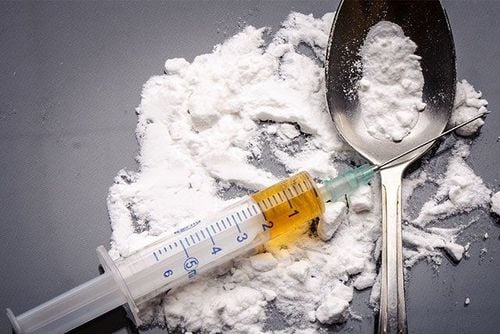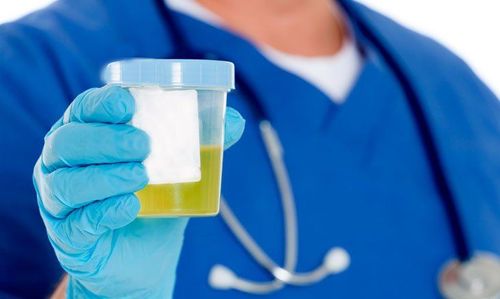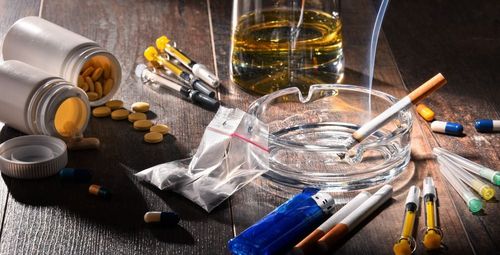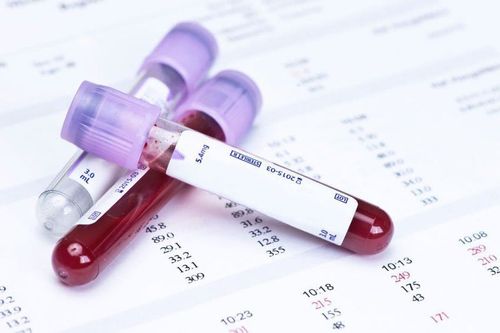This is an automatically translated article.
People often use testing methods such as: blood, urine, hair... to detect all kinds of addictive substances as well as addictive ingredients that exist in the human body for a period of time. certain time.
1. What is a narcotic?
A narcotic is generally any substance that, when absorbed into the body of a living organism, alters the normal function of the body in such a way as to create a dependence on the substance or a sensation of it. cravings, addictions, and addictions to varying degrees.
Narcotics generally refer to recreational drugs, chemicals that have a negative effect on the central nervous system, such as opioids or hallucinogens. They can be used to create a perception of beneficial effects on cognition, consciousness, personality, and behavior. Some drugs can cause addiction or addiction.
A recreational drug is used as a mental stimulant to provide pleasure, to try an experience, or to reinforce a previously considered positive experience. Laws in many countries prohibit the use of various recreational drugs, while recreational drugs are being tightly regulated in their scope of use.
2. What drugs do blood tests detect?

Xét nghiệm máu có thể phát hiện được tất cả các chất gây nghiện khi được người dùng mới sử dụng gần đây, trong thời gian giới hạn quy định
Blood tests make it easier for doctors to monitor and evaluate health conditions and at the same time detect many diseases or disorders related to blood test parameters.
2.1 Why do blood tests detect drugs? In fact, drugs or any addictive substance or stimulant when entering the body also forms one of the components in the blood. Therefore, blood drug testing belongs to the group of tests to detect diseases of the blood and blood components. With each different drug, different duration of life will give blood test results with different accuracy rates.
2.2 What drugs do blood tests detect? The blood test can detect all drugs when used recently by a user, within a specified time limit. Blood test results will be difficult to get accurate when the time of last use is longer than a few days or weeks. The specific time for a blood test to be able to determine the presence of addictive substances in the body is:
Amphetamine: 12 hours Cannabis: 2 weeks Cocaine: 1-2 days Heroin: 12 days Psychoactive drugs : 2-3 hours Ecstasy: 1-2 days Methamphetamine: 24-36 hours Morphine: 6-8 hours Blood tests help doctors monitor and assess health status and at the same time detect related diseases or disorders.
3. What drugs do urine tests detect?
Urine is produced by the kidneys. The kidneys filter waste out of the blood, help regulate the amount of water in the body and preserve protein; electrolytes and other compounds that the body can reuse. Substances that are not needed are eliminated by the kidneys in the urine.
3.1 When do people choose a urine test? After addictive substances are introduced into the body by many ways such as smoking, injecting, drinking ... then surely the last step to eliminate all substances as well as components of addictive substances will be urinary excretion.
Among the methods of drug testing, the urine test is the most commonly used and most commonly used forensic test. Because they are more suitable and easier to sample than other methods.
The urine drug test can still show errors in the results if the person performing the test has taken different drugs into the body, for example birth control pills; medicines containing riboflavin, or creatinine; Diuretics... Not only that, but the error can be caused by the urine sample being diluted during the sampling process, or the urine test sample has been mixed with additives, for example: soap, chemicals. cleaning agents, ammonia...
3.2 What do urine tests detect? Urine tests can detect all drugs as long as they remain in the human body for a certain period of time. Taking a urine drug sample with each different addictive ingredient at different times for testing will give different results with different accuracy, depending on the time factor of the drug's existence. in the body.
Amphetamine: 1-3 days Marijuana: 7-30 days Cocaine: 3-4 days Heroin: 3-4 days Psychoactive drugs: 1-3 hours Ecstasy: 3-4 days Methamphetamine: 3-6 hours Morphine: 2-3 hours

Xét nghiệm phát hiện chất gây nghiện qua nước tiểu vẫn có thể xuất hiện sai sót trong kết quả nếu như người thực hiện xét nghiệm đã tiếp nạp những loại thuốc khác nhau vào cơ thể
4. What drugs do hair tests detect?
Medicine has diagnosed the disease when analyzing blood, urine, feces, cerebrospinal fluid, liver cells, tumor... can also find disease symptoms when studying a hair.
4.1 Why can a hair test detect drugs? Because hair is nourished in the body by blood, each hair follicle will accumulate a full range of components in the blood, from blood, from lymph, including components such as metals entering the body. , drugs, stimulants, narcotics, narcotics...
Besides, these ingredients last much longer in the hair than in the blood, so Hair drug test gives the most accurate results.
Through a hair test, the doctor also determines exactly when the drug was introduced into the body, how long the drug has been used, based on the drug composition on which part of the hair.
It is possible to test for drugs in the hair because trace element components when introduced into the body or concentrated in the hair have a peak concentration ten times higher than when present in serum or urine. The actual test results showed that other drugs and addictive substances such as barbiturates, amphetamines... all started to exist in the hair 3 months after the last use by injection or orally. Moreover, it is difficult for drug addicts to get through 3 months of not using drugs again.
4.2 Easier hair drug test When collecting samples, there are less obstacles and difficulties compared to blood and urine samples. Easy maintenance because hair does not break down like body fluids or tissues. Analysis of drugs in hair has a wider detection window than urine or blood samples, so it has many advantages in retrospectively looking for causes and results is considered more comprehensive. 4.3 What do hair tests detect? Hair drug analysis can extend the toxicity testing of common "drugs" and thus contribute important information for case-specific assessment. Hair tests can detect all drugs last used for up to the last 3 months.
One of the reasons why hair drug tests are not absolutely accurate is that each different drug has a different time in the body:
Amphetamine: lasts up to 90 days Cannabis : up to 90 days Cocaine: up to 90 days Heroin: up to 90 days Psychoactive drugs LSD: up to 3 days Ecstasy (MDMA): up to 90 days Methadone: up to 90 days Morphine: up to 90 days Substance tests should be conducted in hospital settings, where hair testing is difficult to falsify results.
5. What drug does a saliva test detect?
5.1 When does one choose a saliva test? After use, drugs can be rapidly metabolized in the blood. Detecting drug metabolites through body fluids (such as blood, urine, saliva) can indicate recent drug use.
Testing for drugs by saliva testing is becoming more and more popular, thanks to its convenient and non-invasive way of collecting samples. In recent years, various studies have shown a strong correlation in the concentrations of drugs and their metabolites in blood and saliva samples. Saliva sampling is performed by "face-to-face" face-to-face sampling and thus prevents sample tampering and eliminates privacy concerns. Saliva sampling can be done easily and repeatedly in a variety of settings.
5.2 What do saliva tests detect? In fact, the saliva test can detect all the addictive substances that exist in the human body within a certain time limit.
However, as with blood tests, saliva testing during long-term substance use is likely to be negative. This may be due to the extremely short time it takes for the drug to be eliminated from the bloodstream.
Test by any method can detect all drugs still in the body, but it takes a certain amount of time to give accurate test results. Many methods will give false results when using the substance for a long time. Therefore, when a drug is suspected in the body, it is necessary to have an early diagnostic test so that the patient can be treated early, because if the drug is left for a long time, it will erode the body and cause many complications.
Please dial HOTLINE for more information or register for an appointment HERE. Download MyVinmec app to make appointments faster and to manage your bookings easily.













